We asked a few seniors to reflect on their final year of high school and the challenges of the COVID-19 pandemic. Here are four who responded.
School Community’s Dedication Made It a Good Year
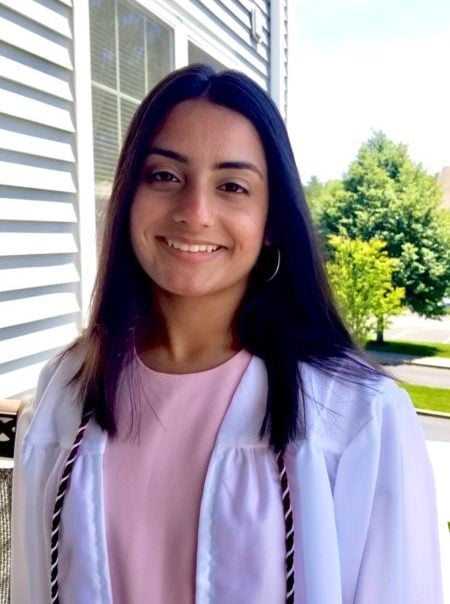
Aiza Shaikh
This year was unique, but it wasn’t necessarily bad. We did frequently experience some challenges, especially at the beginning of the school year. Since my last name falls in the second half of the alphabet, I started the year by going to school on Thursdays and Fridays and spending the rest of the week online. I often felt disconnected from the other half of the student body since I rarely ever got to see their faces. Classes such as English and History, which typically involve a lot of student-led discussions, felt awkward and strange at times due to that disconnection. However, despite all the drawbacks, I’d say my senior year was quite successful. And I think it turned out to be such a good year because of how dedicated the entire school community was to making it one. Teachers created new lesson plans – and some even changed their entire course curriculum – to ensure that all students would have the best learning experience possible, whether it be from home or in the building.
Also, I think the school year got better as it went on. When we switched to full in-person learning in April, everything started to look more like a traditional school environment. I remember walking into the library that Monday and feeling shocked to hear so many voices at once. The noises of students walking in the hallway got so loud that we had to shut the classroom doors every so often, just to be able to hear ourselves speak in class. It was nice to hear those familiar “school sounds” again – I had definitely missed them. I’m also happy that Senior Week activities have gone ahead as planned, because I was worried they’d have to be cancelled due to COVID guidelines and restrictions. During the first week of June, seniors had the opportunity to go to Block Island and Launch Trampoline Park. The second week of June, we’ll be doing the annual Grad Walk, Ivy Day, and Field Day. I think it’ll be fun to reunite as a class a few more times before we graduate and leave EGHS.
– Aiza Shaikh
Successes, Failures & A Lot of Screentime
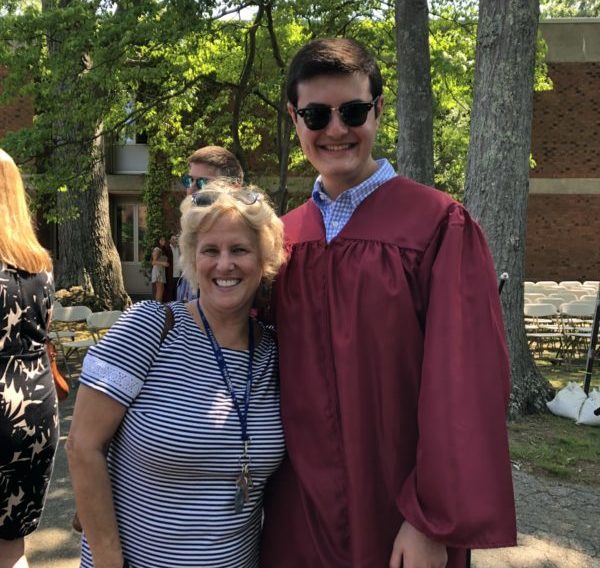
David Amirsadri and Madame Varone at Ivy Day.
Paul Cezanne once observed that we “live in a rainbow of chaos.” Thanks to the herculean effort of EGHS stakeholders – administration, faculty, and school groups – I don’t think Cezanne’s quote is an entirely accurate description of the 2020-21 school year. Like any school year, there were successes and failures. From an academic standpoint, I appreciated the willingness of teachers to slow the pace of instruction. I was better able to internalize content because of this. That said, the lack of traditional rigor and challenge was a disappointment. In a similar vein, technology has been both a blessing and a curse. On the one hand, technology has allowed for some semblance of normalcy and continuity in an otherwise extraordinary year – despite any challenges we may have had with school internet, or the strength of Chromebooks. Nonetheless, staring at screens for hours on end is never a pleasant – or healthy – experience. Never was I more exhausted than at the end of a distance-learning day! Hopefully, 2020-21 will inform better choices about education in our district, state, and nation in years to come.
– David Amirsadri
Segregation, Isolation, Frustration
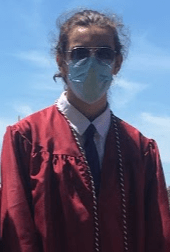
Miguel Figueroa
This pandemic exposed every problem in our school system, especially the school administration’s systematic segregation, isolation, and gaslighting of neurodivergent and disabled students and their families. All of these problems bubbled to the surface this year, on full display for anyone with the stomach to look. But the school system seemed to stubbornly refuse to learn from it. Instead, they continued the factory model of schooling and degraded students’ mental, social, and physical health. Students and faculty tried to warn them. We made petitions, speeches, and articles. We tried to talk clearly and directly to administrators and parents. But at the end of the day, the school system did not give students or faculty the time we needed to process or heal from the traumatic events of the past year. The reverence for a good education that we had spent years building was slowly unraveled as we saw our education treated not as a tool for our benefit, but as an institution for our required participation. The frustration made kids snap. Students skipped class, ignored schoolwork, lost sleep, self-medicated, broke quarantine, and considered suicide. They did this, not out of laziness or stupidity or personal irresponsibility, but out of stress and mental illness and trauma. This isn’t exclusively the fault of one school administration in one small Rhode Island suburb. Federal education budget law doesn’t give schools the resources to create contingencies for these kinds of problems. That’s not something a relatively new school administration can fix with a monthly multiple choice survey or a “Senior Celebration.” I don’t blame the individuals in this community as much as I blame the system as a whole. But the social responsibility to solve these problems lies more on the shoulders of those in power than on those at the bottom of the chain of command. And the effects of the pandemic will stay with us for a long time. It’s not over just because we didn’t wear masks during Ivy Day. I have learned an untold story about crises like this one: in the absence of substantive help from people in power, young people will create support networks for one another. I personally know students who are acting as a shoulder for the hurt students in this community to cry on. It’s a rare moment of visceral, inspiring beauty in the aftermath of this crisis.
– Miguel Figueroa
At the request of the student above, his submission was edited since the story was first published.
Hope and Sadness and Excitement and Frustration
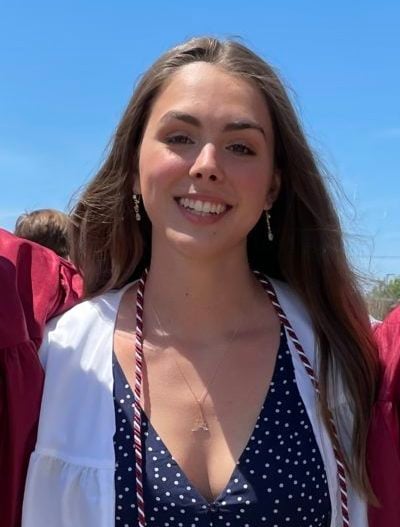
Jessica Caterson
“It was the best of times, it was the worst of times, it was the age of wisdom, it was the age of foolishness…”
It was a convoluted wormhole of hope and sadness and excitement and frustration, all taking form as google meets and COVID protocols, quarantining and lunch contact tracing. It was nothing like anyone could have ever imagined senior year to be. I feel like I’ve aged ten years in the past nine months; I’ve been overwhelmed with the magnitude of my future, I’ve been excited about the little victories in my present, and I’ve experienced just about everything else in between. Learning virtually this year took a toll on everyone, and it really showed me just how important socialization with positive influences is for a healthy life. It was difficult to see the typical senior privileges and events get scrambled during this time, but it made the successful in-person celebrations in the spring that much more enjoyable. When all is said and done, this– Jessa was our journey. The Class of 2021 started this year in the heart of the pandemic and ended it in-person at near full capacity. We overcame the onslaught of COVID-19 during the end of our Junior year, and we continued to persevere until the end. We made it, and that in it of itself is something I’m incredibly proud of and grateful for. Thank you to all of the people in my life that made it possible: my teachers, family, friends, and administrators. This year would not have been possible without you!
– Jessica Caterson

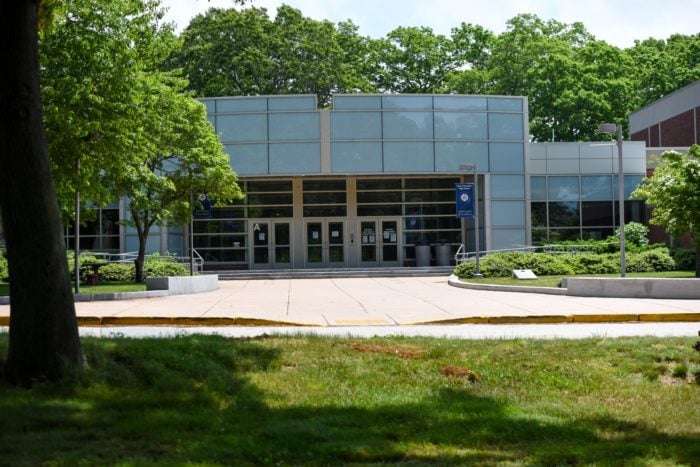

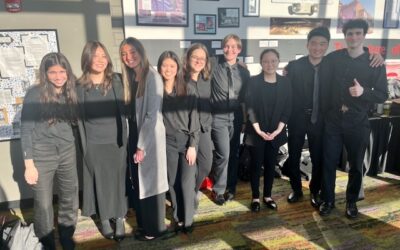
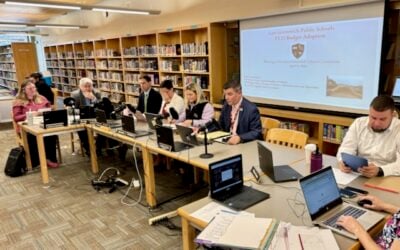

 Subscribe
Subscribe